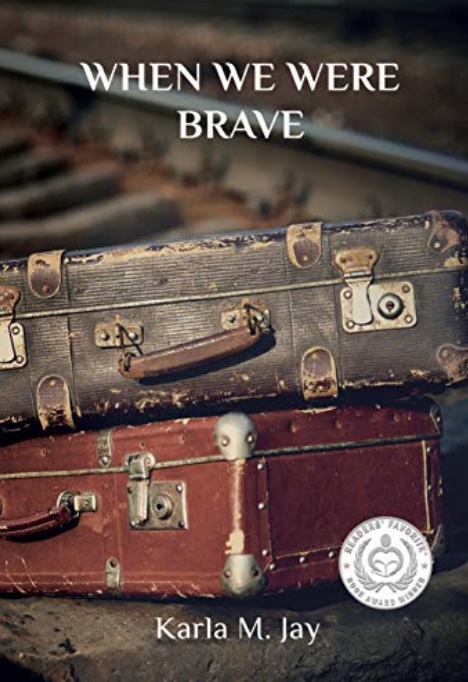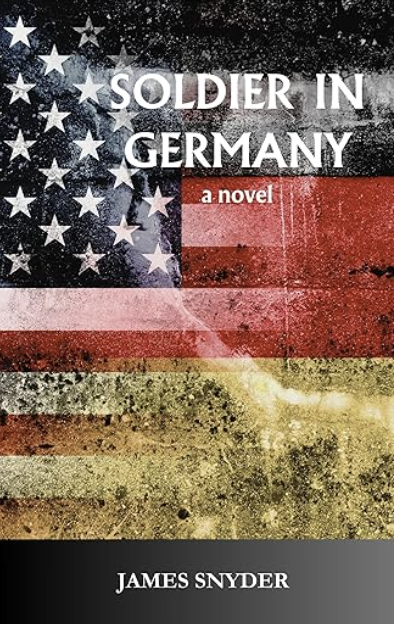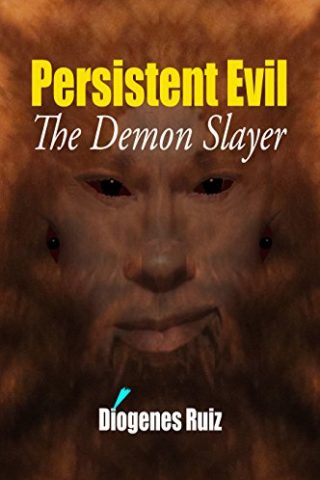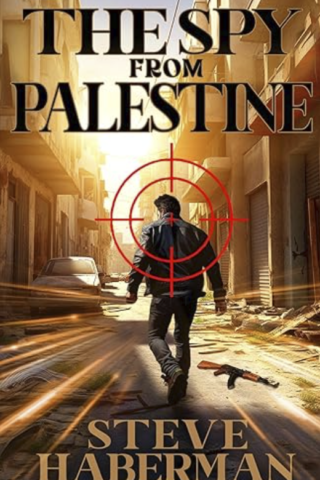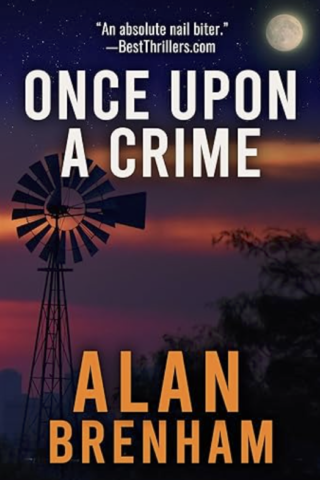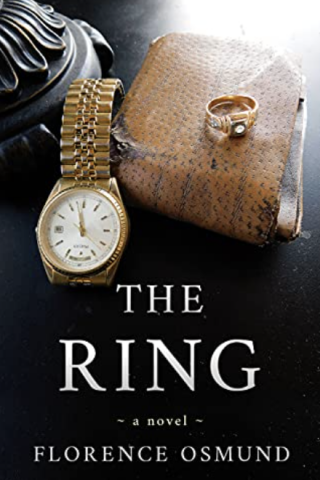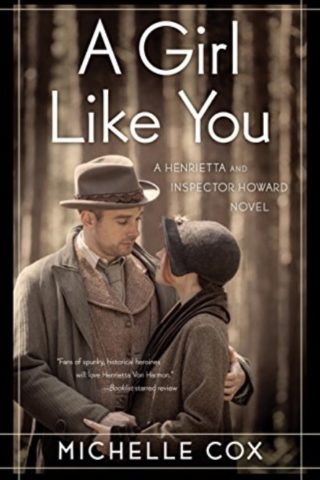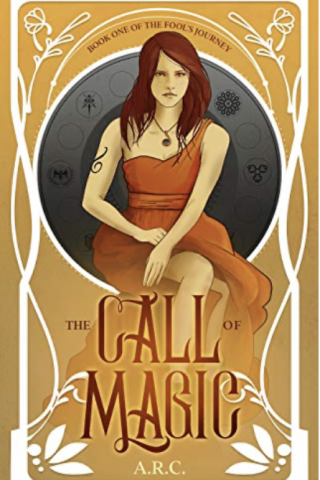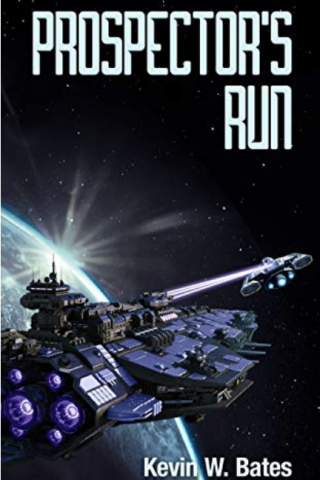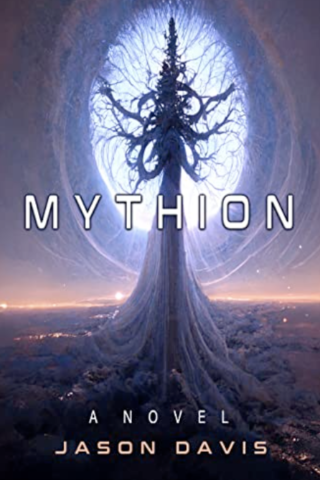The opposite of bravery is not cowardice but conformity.
~ Robert Anthony
One does evil enough when one does nothing good.
~ German Proverb
–1 –
WILHELM FALK
Avellino, Italy – November 11, 1943
SS officer, Sturmbannführer Wilhelm Falk kicked away the broken glass crunching under his boots in the shoemaker’s second-story apartment, the shards making faint clinking sounds as they struck the fire- place bricks. He studied the three dead German soldiers who’d never re- turn home. The place Hitler claimed they fought to protect. Not fighting to defend the “Fatherland,” a vague term that didn’t motivate troops. The Führer, known to be more masterful and cunning, instilled fear on a per- sonal level. He targeted the soldier’s family—the potential violation of his
wife, the death of his children.
Early on, Falk believed that call to duty. But that was before he expe- rienced the death camps. Nothing he saw there was even remotely con- nected to protecting his wife and children. He tried to bury the visions of skeletal, fellow human beings no more than a whisper away from death, of the beatings, and of chimneys pumping out foul smoke, but the memo- ries always clawed their way to the forefront of his mind. Despair had filled his days and ghosts haunted his sleep until Falk knew he must do something or die trying.
The family who owned the cobbler’s shop must have fled before the Germans took over the town. Depleted furnishingssuggested the wood fu- eled the large fireplace through two bitter winters. Bookshelves lay broken apart. A few unburned books were spewed into dark corners. A lopsided antique dollhouse sat under the table, its small porcelain doll familystrewn across the floor as fragmented as the rest of Hitler’s empire.
Falk breathed a sigh of relief he’d found no other bodies in the attached rooms. He shook away an all-too-recent memory from inside a house near Warsaw. A man and woman were deceased in the kitchen, shot in the head, but the scentof death also emanated from the dining area. Two young boys were found dead, locked inside the center compartment of a hutch. What the parents must have hoped would keep their children safe resulted in an agonizing death. The bloody marks on the inside of the cupboard revealed the boys had tried to escape. The gruesome scene struck him in the gut as he thought of his two young sons.
Now by the look of this home, the three German soldiers had been taken by surprise by the British. Two shot dead at the dining table, their congealed meal still in front of them, while the third sat slumped against a wall, a broken coffee cup next to him. This soldier was shot while stand- ing, and the blood-smeared wallpaper behind him marked his slide to the floor. Falk moved closer to the man, and with a squinted eye, studied him. A sculpted nose on a chiseled face, thick blond hair, and he seemed close to Falk’s 5’10’’ height. Hard to be sure in that hunched position. But the soldier was the closest to what he’d been looking for in the last hour as he combed through buildings, turning over dozens of Wehrmacht corpses shot by the British when they reclaimed the Italian city.
Falk had nearly run out of time in his search and his head pounded from worrying he might fail. Although the loud thunder of the British bombers had stopped, the second wave of ground troops would soon arrive to check the buildings for any Germans they may have missed a few hours earlier. When the generals heard of the loss of another military line, they would be furious, but he no longer cared about the Wehrmacht’s feelings as he wrestled with his own. The horrific thingshe’d seen. The things he’d done. But mostly the guilt from the things he hadn’t done.
He reached for the stiff soldier’s shirt and began unbuttoning and removing his uniform. Then he removed the soldier’s identification pa- pers and set them aside. The pulling and pushing on the corpse’s rigid limbs to undress him soon had him breathing hard. His shaky fingers fumbled with the buttons on his own long coat as he shed his officer’s uniform. The mix of exertion and fear slowed him down, chewing away at the precious minutes he had left. Falk set aside his weapon belt and quickly dressed in the infantry soldier’s pants, shirt, and boots. Then he knelt and strained once again to outfit the dead man in his SS major’s uniform. When finished, he glanced at the soldier and a shock zipped through him. The soldier’s build and facial features were more similar to his own than he expected, and it was as if he were looking at a dead version of himself.
Which would be sooner rather than later if he were caught there.
Falk took off his signet ring and carefully removed the cyanide pill hid- den inside. He pocketed the small tablet—insurance in case his plan failed. He reached for the soldier’s cold hand and broke the rigor-curled finger, the snap resonating through his own hand before he slid on the ring. He removed his own gold Swiss watch and paused, turning it over to read the engraved inscription: Wilhelm, My Love, My Life, My Hero. Ilse. His chest tightened. Would his wife have the same sentiment today if she learned what he was doing? His sons. Would they be ashamed he was about to de- fect, orwould they understand his sacrifice? He strapped the watch onto the dead man’s hairy wrist and then stood and buttoned the enlisted infantry- man’s uniform. It was made of inferior quality wool and the original olive color faded to a greenish khaki. But it fit, and the blood on the chest of the jacket would be easy enough to explain. What soldier hadn’t dragged a bleeding companion to safety?
He reached for his gun belt and unclipped his Walther P38, the aged leather crackling as he pulled out the weapon. Hishand shook slightly with the knowledge there would be no turning back once he killed himself. SS- Sturmbannführer Wilhelm Falk would no longer exist, the only option left to him. Until a week ago, he managed to keep secrets from his fellow SS officers, secrets that would have gotten him shot. Then, at an undisclosed postbox in Brussels, he was caughtchecking his mail, and on that day, he’d talked his way out of it. No big deal. Many officers claimed a mistress, so he fabricated one with blonde curls and a flirty walk. The SS officer laughed and patted him on the back. But suspicion swirledlike thick smoke among the highest-ranking officers and Falk hadn’t missed the hard glint of distrust behind the heartylaughter, and he’d been right. Soon after, he was ordered to arrive in Berlin at his earliest convenience. With his new plan, Officer Falk would be “too dead” to report to Goering or the rest of Hitler’s favorites.
He listened for footsteps from the hastily abandoned street below. Although he believed he was now alone in this part of the city, he wasn’t a hundred percent sure. No other sounds reached him except for a loose wire scratching against the outside wall and the faint hiss of radio static in the distance.
Turning back to the dead soldier, he leveled the gun at the man’s face and pulled the trigger. He felt the blast’sreverberation in his back teeth and cringed as the sound echoed off the walls. The bullet hit its mark, obliterat- ing the corpse’s ashen-colored skin, leaving a mess for the burial corps— the “cold meat specialists.”
His gun felt heavier than usual as he set it next to the soldier’s hand. But more weight had not been added to the gun.The heaviness was mental. Desperation and remorse had drained the strength from him for months. With his nerves strungtight like old piano wires, ready to snap with any ad- ditional tension, he hadn’t slept more than a few hours a night. He needed the brutalities he witnessed over the last fifteen months to stop playing through his mind. If his plan failed, the cyanide pill would put a prompt end to his nightmares.
Through the broken window, he gazed in the direction of the building across the street and then focused on one pair of work trousers hanging from the clothesline. A pant leg pinned by a wooden clip to the line while the other leg flappedagainst the wrought-iron balcony. If ever there was an image of abandonment, this would be it.
The last glass shard in the window threw a spotlight on the scene at Falk’s feet—an impeccably dressed SS officer with no face. At that mo- ment, he spotted the dead man’s soldbuch on the floor, identification papers he needed or risk being shot.
He opened the leather-bound packet. He just became Klaus Stern, a low-ranking soldier. If he chased down Klaus’s 10thArmy Division in time, he’d be captured by the unrelenting British 8th Army that had the Germans pinned down. His newidentity sheered two years off his thirty-two. Ironic.
What he wouldn’t give to erase the last two years of his life, knowing what he knew now.
Again, he listened for noises outside. The distant stipple of gunfire confirmed the Wehrmacht soldiers still held the subterranean complexes beneath the medieval walls. The stone fortifications were the last bastion of defense to hold the Volturno Line before Hitler grudgingly moved another pushpin northward on the map of Italy.
Set high on a butte, the walled village of Avellino overlooked valleys in three directions. Unless the weary Germans found the resolve to climb over the soaring Partenio Mountains at their backs, they were trapped. Falk imagined the disillusionment the soldiers must be feeling. Hitler declared their fighting force remained as unbreakable as Krupp steel. But the harsh reality was that American and British troops had been cutting through their steel for six months in Africa and now Italy, slicing away at the dream of promised world domination. In the beginning, he believed there was a need to fight to save his country from Russian rule as wit- nessed in the Great War. But rage consumed him knowing Hitler created a secret war within this fight to “purify” the country and the entire con- tinent, of different races. As a shocked observer at the death camps, Falk did nothing to stop the killings. One dead SS officer would have changed nothing. His inaction caused deep-seated guilt and nearly drove him to suicide several times, but that pain was ultimately the catalyst for defect- ing. He had a plan of action, a reason to live—to try to put a permanent stop to the exterminations.
The British 8th Army and American 5th Army had powered through Avellino earlier that morning, their growling vehicles cutting a wide swath through the cobblestone streets. Falk should have been on a train to Berlin as ordered but instead arrived without suspicion to “supervise” the war ef- fort in Italy, a bonus his rank afforded him. He’d chosen Avellino because it appeared to be the next to fall to the Allies as they streamed through the central part of Italy, taking German POWs faster than they could ship them off continent. Earlier this day, he hid in the stone rubble of a 14th- century church, its majestic clock tower gutted, while he waited for the Allied forces to leave town. The clock’s mechanismshung upside down and continued to orchestrate time but in the wrong direction. The months and years ahead for the town’s citizens were going to be hell. How would the ragged townspeople rearrange their broken village from piles of rocks and wooden beams into the shapes of buildings, into some semblance of life before the war?
It wouldn’t be long before the bomb shelter doors creaked open and the residents stumbled into the daylight, praying for the best, expecting the worst. Falk studied the destruction in the shoe shop. Would this fam- ily return, start over, feel as if they were lucky? Perhaps if all the family members survived.
Falk drew in a deep breath, hoping to energize the fist-sized exhaustion coursing through him. The war had ground him down until sharp rage was the only motivation prodding him from one day to the next. He reached for that anger now as he slid the soldier’s Luger into the holster on his own waist, and picked up a small backpack beside the man. He crossed to the door where only the top hinge held it in place, the splintered frame evi- dence the Tommies had not been invited in for a glass of local wine.
Falk slowly crept down the stairwell and stepped into the street, as- suming his new role as a foot soldier, somewhat road-weary and rumpled. He walked over bits of wood and stone scattered atop the cobblestones. Everything about the scene suggested the village occupants left in haste. A scarf fluttering where it hooked on a fence post. A wooden tobaccopipe on the sidewalk near an overturned green metal table. A child’s leather shoe lying in the gutter.
The residents hid in bunkers or cemetery crypts. When they emerged, the city dignitaries’ first job would be to catalog the deceased civilians while the British dealt with noting the dead soldiers on both sides of the war. SS Officer Falk would be on the list sent to the Wehrmacht.
The sky boiled with battleship-grey clouds. The cold wind carried smoke and he wrinkled his nose at the odor of something burning that shouldn’t be on fire. He hoped it would rain, not to put out the flames, but to give him a measure of cover as he chased down Stern’s division.
As he peered down a trash-strewn alley, a sound caught his atten- tion. A dog urinated against the wall. The mangyanimal sniffed the air in Falk’s direction and then, deciding Falk wasn’t a threat, turned its thin body and trotted away down a wrecked path between crooked buildings. The streets were empty as Falk crept along block by block. A wooden sign declared the small stone building to his right as the post office, and his hands itched for a moment to enter the intact structure and jot down a quick letter to Ilse and his two boys. At ages eleven and nine, they were already asking questions about this war, and trading Heil Hitler salutes with their friends. The last time he’d written to them was two weeks ago while in Ferrazzano. The peace of that steepled town, which overlooked broad rows of plush vineyards, had been crushed in one af- ternoon marked by explosions and gunfire. In his letter to Ilse, he told her it was time to take the boys and get on the next train to her sister’s in the Netherlands as they’d discussed. Once he finished delivering information to the Americans, something Ilse knew nothing about, he’d meet them in Holland. He’d fold his wife in his arms, shake his boys’ hands, and make new family memories, although doing any of those things seemed far away at the moment.
His thoughts spun back through the years to when Hans and Dietrich were roly-poly fat. Now, at ages eleven and nine, they stood lean and tall when he embraced them. It was late summer when he last saw them. Both showed musical talent like Ilse, but wished to be soldiers like him. They’d clomped about in his jackboots on the patio behind their home near Düsseldorf, dressed in short pants and button-down shirts, pretending to give orders. Talking with deep voices and trying to sound serious.
“I don’t sound like that, do I?”
She ignored him, lost in the pleasure of a cigarette he brought home. They sat at the edge of their sloping lawn as summer’s heat hung onto the countryside.
He asked again.
When she replied, her voice was lazy and content. “You have a serious side, Wilhelm. It’s why you’re in a top position.”
She meant her words to compliment, but they cut through him. Men in his top position were acting as if they’d made a pact with the devil. The fairytales this war espoused were that the SS were the elite, the chosen, the righteous. Nearly every month since signing up, he wanted to commit an act of irrational bravery, like hunting down Hitler and putting a bullet through his immoral heart. But it seemed a futile dream. While dozens had already tried, the Führer’s protection squad numbered close to a thousand, and none succeeded. Falk kept his wife sheltered from the truths of what he’d seen but secretly seethed and wept more times as a grown man than as a knobby-kneed child.
“I suppose I’ve changed.”
Wilhelm studied his property. Late summer was his favorite season at home. Fat grapes hung heavy on the arbor, and the garden was a tangle of vines cradling squash and pumpkins. The aroma of flowers mingled with the earthy green threads from the nearby forest, creating a scent that un- wound his tangled nerves. If only he didn’t have to leave.
He hadn’t shared any of the horrors with Ilse. The images of Jews who’d become haunted-eyed skeletons. The burial pits layered twenty feet deep with bodies and dirt. Gleeful soldiers, trading necklaces and wallets mined from the stacks ofluggage left near the trains. The piles and piles of empty shoes.
There were no words for such atrocities and to speak too openly about them would mean death or imprisonment for himself and his family. He’d been spun into a web he hadn’t recognized until he was wrapped, layer upon layer, within its deadly circle.
Hans ran past their chairs, bang-banging a wooden gun at his brother. He wore his father’s field-grey uniform coat, a garment crafted to make onlookers shudder with fear for their lives.
Falk took a long pull from his mug of Schwarzbier, welcoming the sharp bitter taste after months of watered-down beer. The boys wheeled around the yard, their arms outstretched, pretending to be airplanes on attack, and his chest tightened. What would happen to his children, his wife, if he never came back? Or worse, what if Hitler’s henchmen came for them?
He leaned in closer, memorizing her scent while meeting her light-blue eyes with his own. “Promise me that if the day comes when I ask you to take the boys to Eindhoven, you will leave immediately.”
Her eyebrows rose then drew together. “But the Netherlands is in no better shape than Germany, Wilhelm.”
“Ilse. This most likely won’t happen. But, if I ask, I must know that you are there with your relatives, not here.”Growing up, Ilse’s family sum- mered in the Netherlands just across the German border.
She was silent for a moment then spoke. “Of course, darling. We’ll go.
But I hope it doesn’t come to that.”
“Me, too.” He relaxed, but a worry tugged at him. “And don’t believe everything you read.” He spoke those words louder than intended.
Tears welled in her eyes as if she understood what he meant her to know. Had she? Right away, he regretted the firmnessin his tone. Her voice trembled. “What is going on, Wilhelm?”
He slowly shook his head, fighting the words on his lips and the tremble in his chest. Should he tell her everything? Theghastly secrets kept behind barbed wire, the camps with so many unspeakable crimes? Forcing himself not to look away, he’dmemorized every last detail in order to report them later. He had protected her from the horrors he’d seen, and she seemedcon- tent to have him home every two months, more when he was in the area. Their marriage was built on honesty, but the danger of her slipping and tell- ing a friend what he’d learned about the extermination program would put her in immediatedanger, and she’d be questioned. It was better that she never learned any details concerning his plans. “There’s something Ihave to do. People may question my loyalty for a short time . . . until the truth comes out. You are an intelligent woman . . . pleaserecognize the truth when you hear it.”
Doves wheeled from Avellino’s cathedral roof, startling him back to the present. He didn’t want to leave the images of his family behind just yet, but the babble of voices reached him—townspeople returning from safe havens to assess their new reality. That prompted him to get moving. Getting hacked to death by angry citizens wasn’t his plan. He needed to find the ragtag Wehrmacht 10th Army and surrender with them. He stuck to the alleys and small streets and headed toward the final battles at the edge of the city in order to slip into Klaus Stern’s unit.
Becoming a POW and getting to the United States was his last hope to tell the world about the death camps.
He’d used his position as an SS inspection officer to travel and mail letters—while in each new city—to Europeanclergy and Danish and Swiss political resistance groups, notifying them about the hidden truths of the “work camps.” He prayed someone would rise up and stop Hitler’s “acts of cleansing.”
No one had.
His plan to surrender with the Wehrmacht soldiers could leave him in a hopeless situation with no option for escape. But with evil at his back and the possibility of disaster dead ahead, he chose the future.
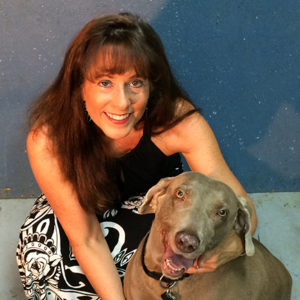
Kara M. Jay
